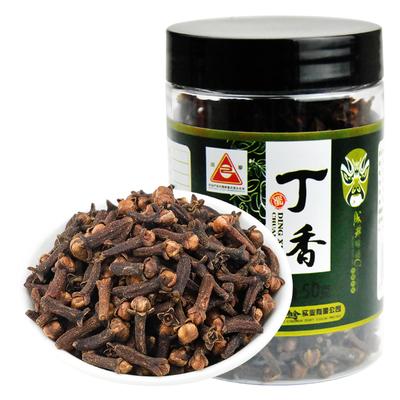15. 丁香 (dīng xiāng ) – Cloves – Syzygium aromaticum

When I first heard the Chinese name for cloves I was delighted; dīng means ‘nail’ as in ‘hammer and nail’. Just what they look like. Unfortunately, I then learned the appropriate character and discovered I had jumped, as usual, to the wrong conclusion. The nail dīng is 钉 and not 丁. You can see the latter embedded in the former, but here it is just a phonetic element. Chinese homophones will be the end of me! The English name ‘clove’ is derived from the French for nail, ‘clou’.
But on with the show.
Cloves are the dried, unopened flowers of a tree native to Indonesia, but now domesticated worldwide. It can reasonably be argued that the entire history of European expansion and colonialism which shaped the modern world in so many ways was based on cloves (and nutmeg). For a fascinating read on that history see Nathaniel's Nutmeg: or, The True and Incredible Adventures of the Spice Trader Who Changed the Course of History (eG-friendly Amazon.com link) by Giles Milton.
It is said that in the 3rd century BCE, Chinese Han Dynasty emperors required that all visitors chew cloves to sweeten their breath.
Its main culinary use in China is as yet another essential ingredient in five-spice powder, but is also found in many of the sort of hot pot spice mixes I described above.
It is also widely used in Traditional Chinese Medicine (TCM). Everyone knows the toothache trick of biting a clove to dull the pain.
Again, cloves are available both whole or pre-ground for the ignorant and lazy! The whole cloves keep their taste for months; the pre-ground was already stale before it left the factory.



